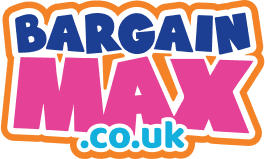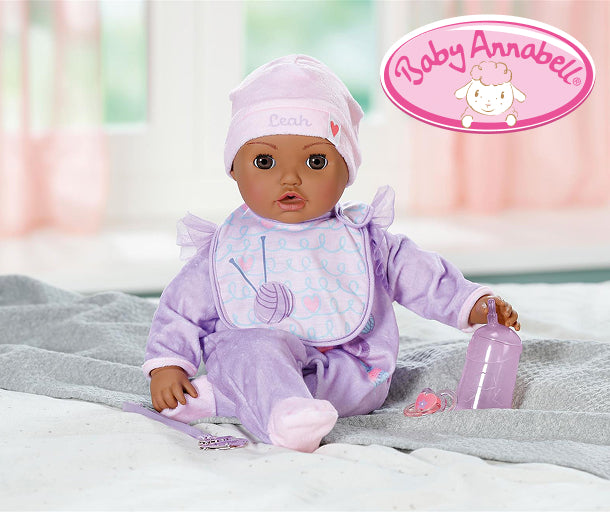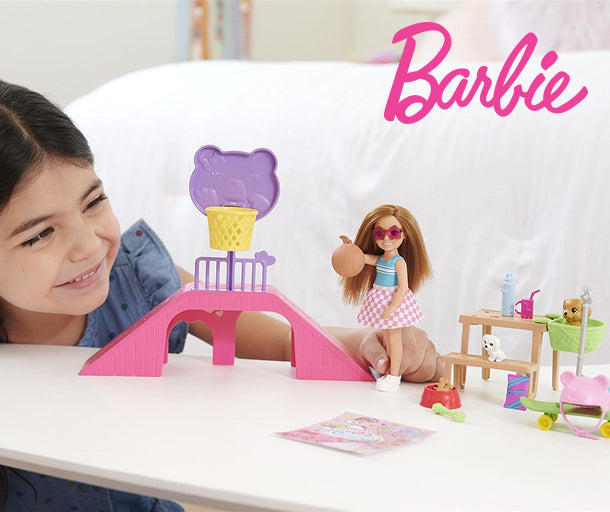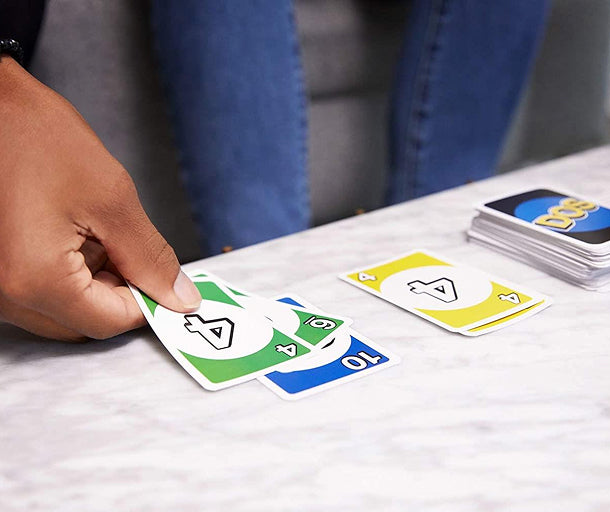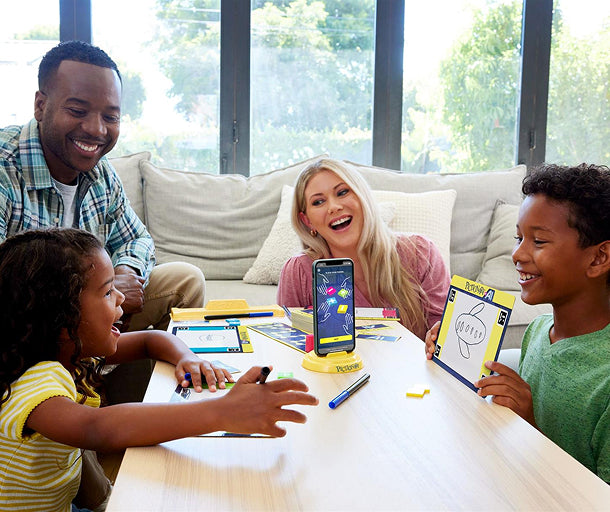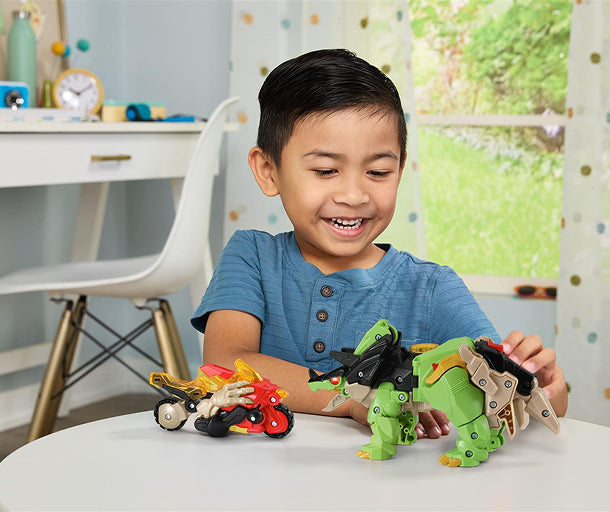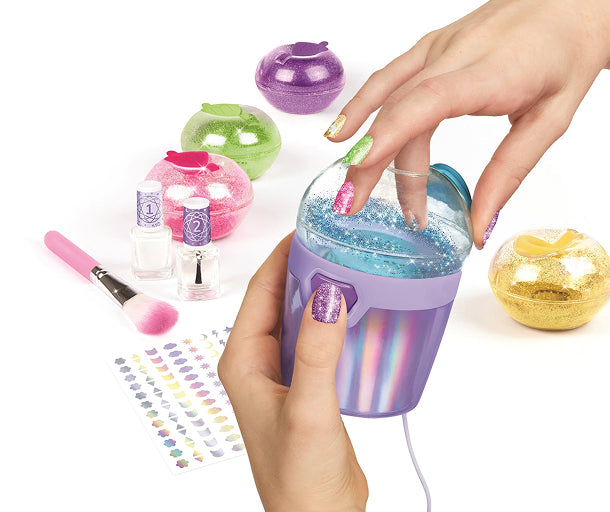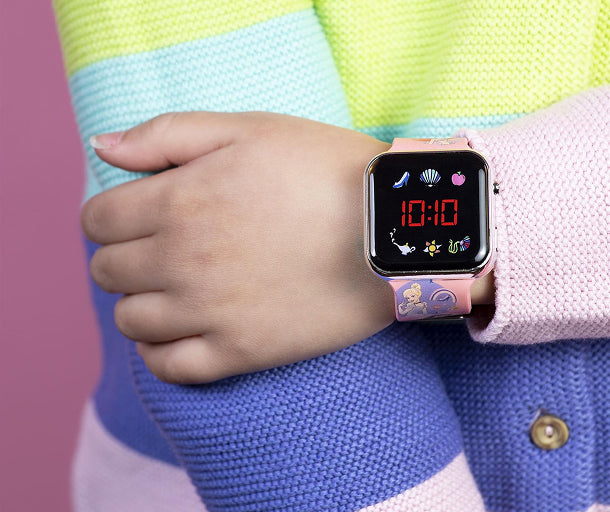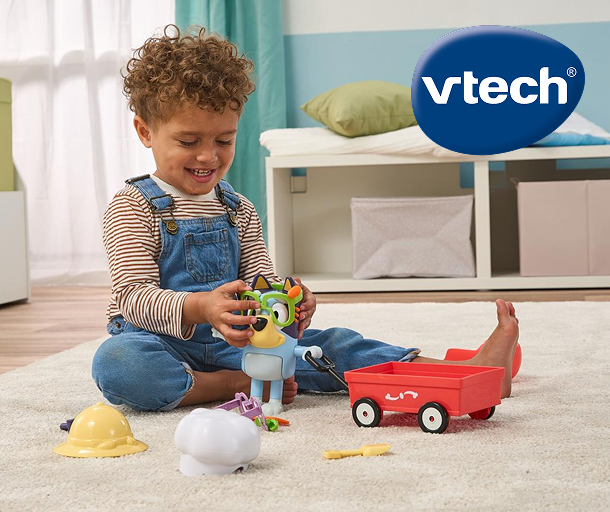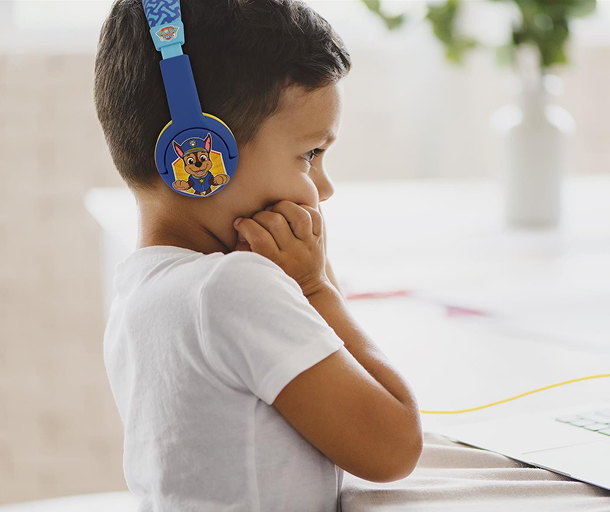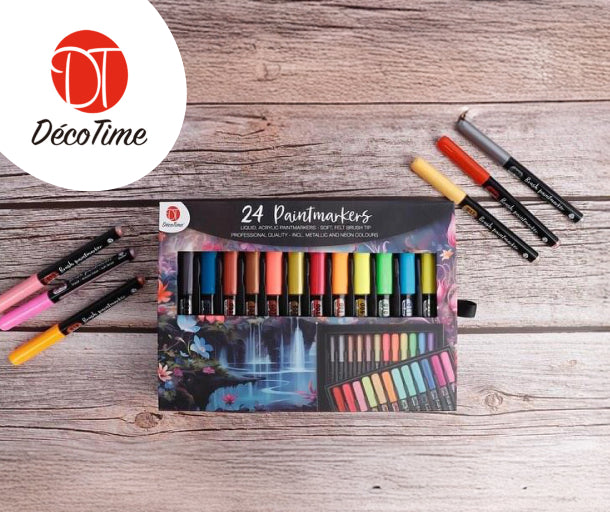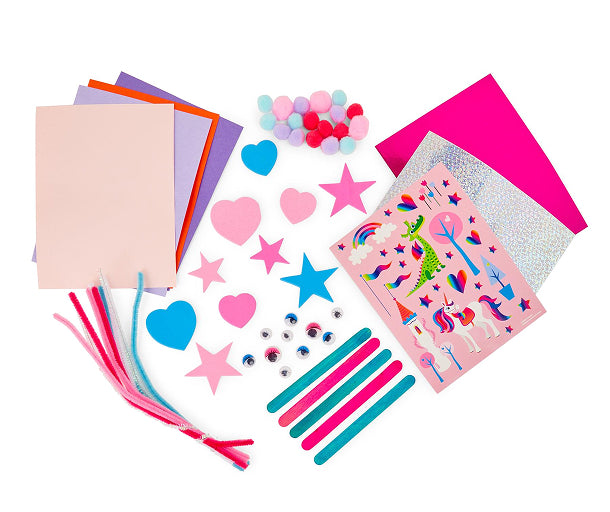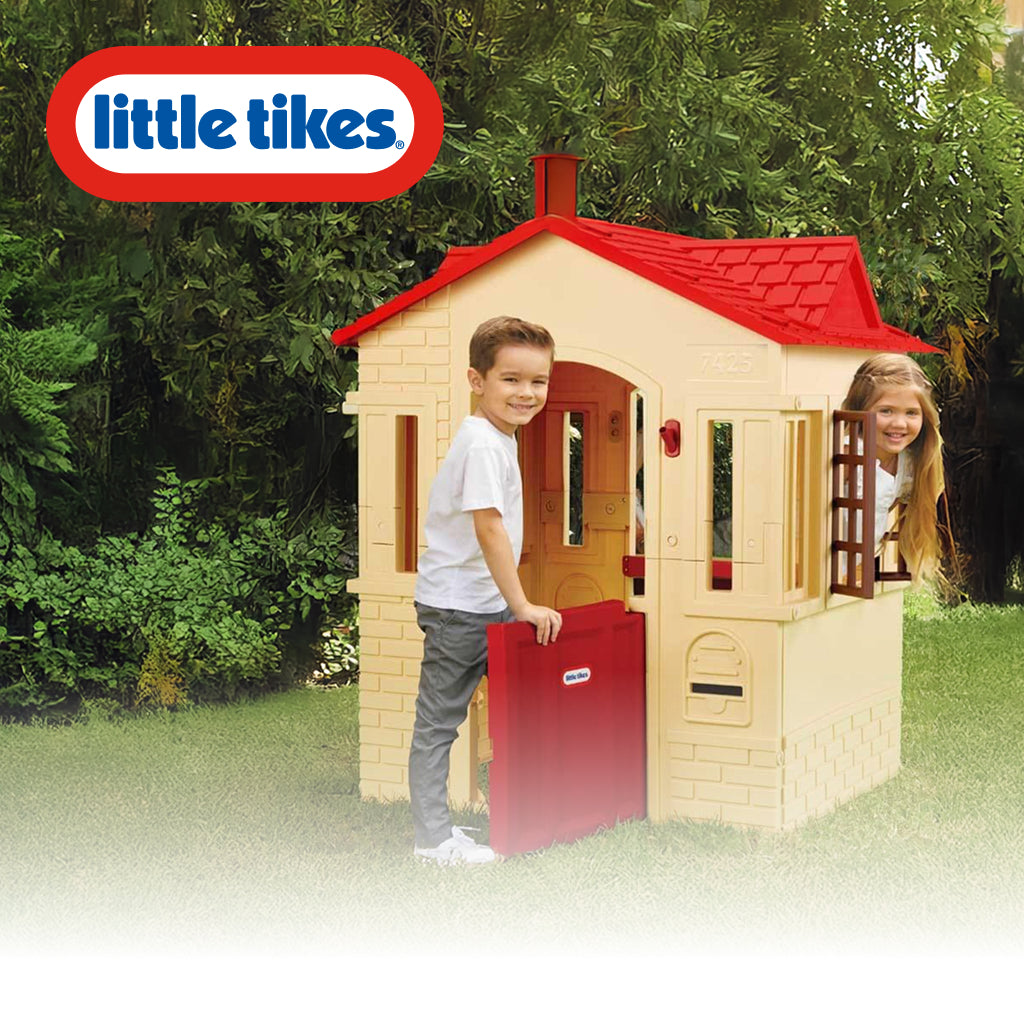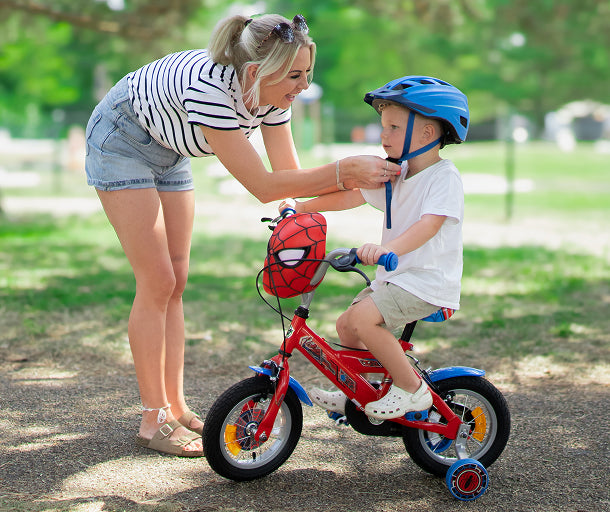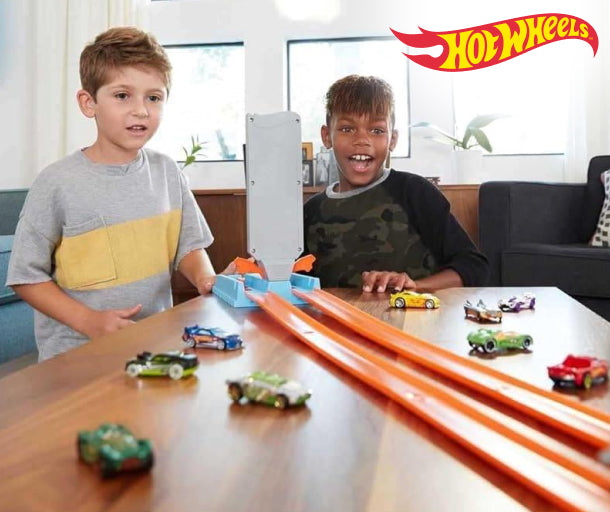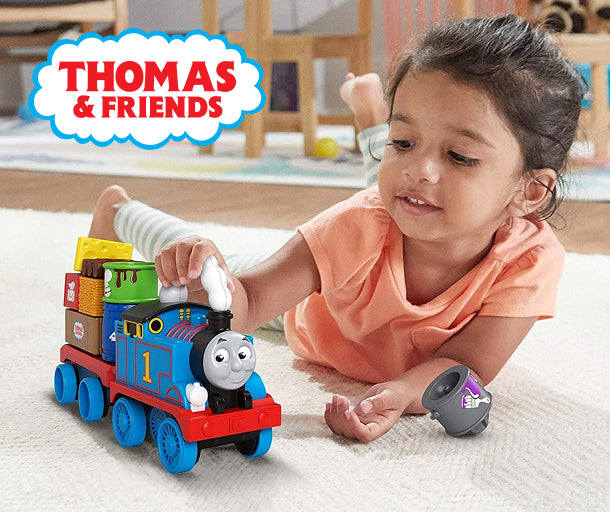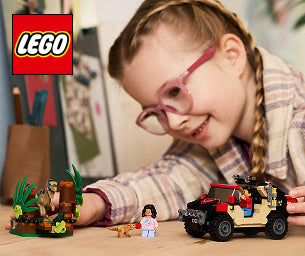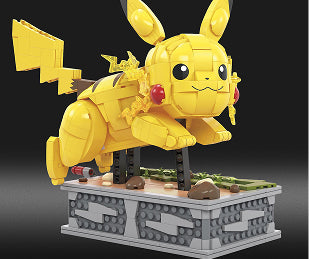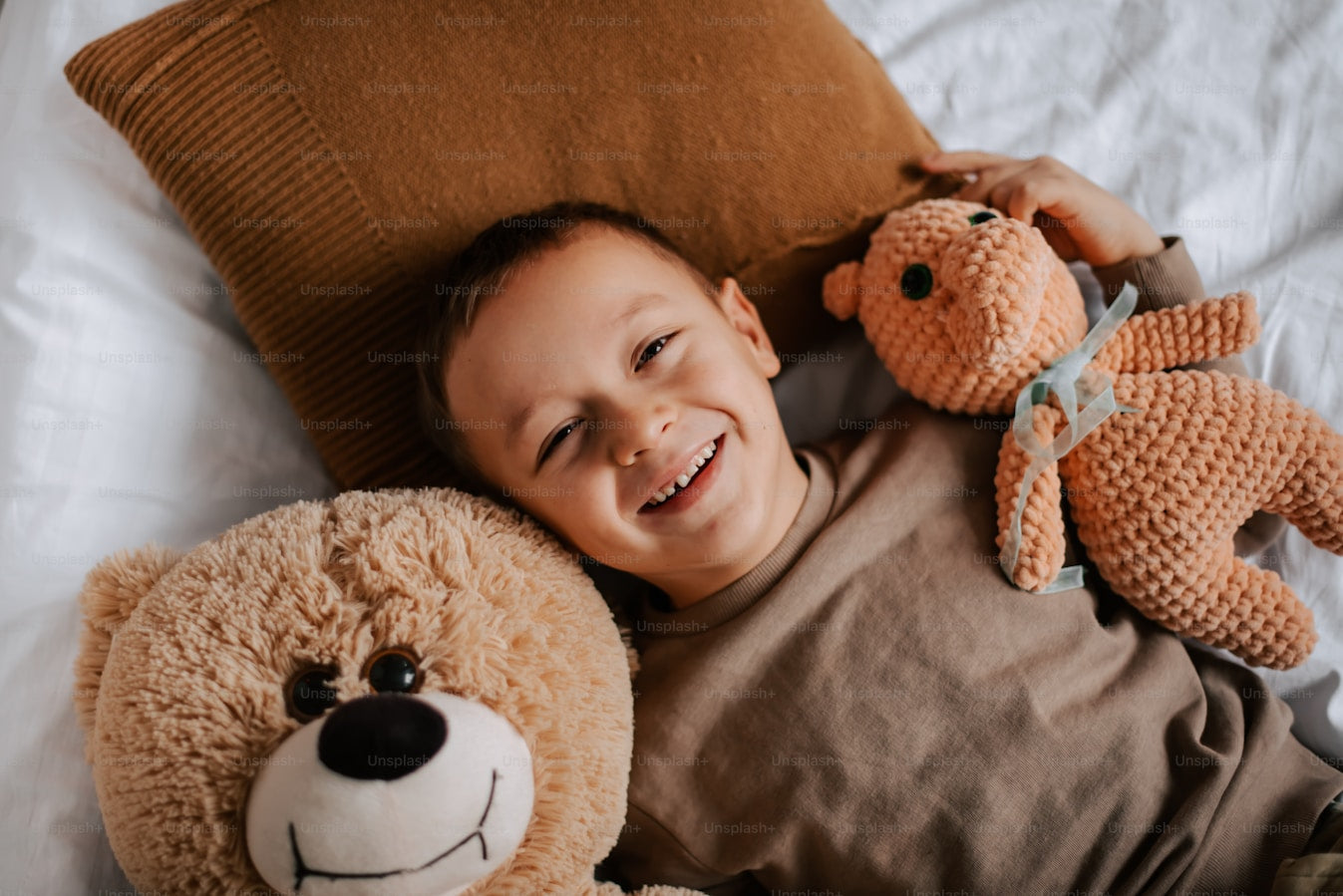The Best Educational Toys and Games for Kids of All Ages
Educational toys offer the best of both worlds: they're fun to play with and support important developmental milestones. The right learning toys can help children build vital skills as they grow, but choosing the best ones depends on a few key things, like their age, stage of development, and unique personality.
In this guide, we'll explore the top educational toys and games for different age groups, so you can find options they'll truly enjoy.
What are educational toys for kids?
Any toy can be educational in the right hands because there are so many ways toys can help with your child's development. Many toys can be valuable, but when discussing educational or learning toys, we mean toys designed to be fun and provide your child with a new skill as they play. They are the perfect learning aid because, when using them, your child doesn't even know they're learning!
For example, STEAM toys are educational toys designed to promote learning in Science, Technology, Engineering, Art and Mathematics. Often, kids using these toys choose to use them out of curiosity or because they are genuinely interested in the topic, without realising they are learning vital skills whilst playing.
What makes a toy "educational"?
A toy can be educational in many ways because your child still has many valuable skills they must learn. What they need to know can depend on their age range and developmental stage. An educational toy usually checks a few of these boxes:
- They develop fine motor skills and hand-eye coordination. This can be done by connecting blocks, threading beads, or using a toy screwdriver.
- It encourages problem-solving. Examples include construction toys or interactive puzzles - these can teach them how to think logically over time.
- They can help establish a specific concept that can give them a basic understanding that can then be developed. For example, an alphabet puzzle can teach them the core principles of the alphabet, or a set of geometric shapes can teach them about different shapes.
- Teaching them about cause and effect. Brilliant cause-and-effect toys, like a marble run or pop-up toy, teach them that every action has a corresponding reaction.
- These toys can help children develop their creativity and imagination. Role-play toys and open-ended building sets can be great starting points for this development.
Why are educational toys important?
These types of learning toys are the bedrock of foundational learning. As toddlers and pre-schoolers, these toys establish critical skills that progress their development and give them some independence as they grow. As they age, these toys help establish their passions and interests, shaping their personality by building confidence and laying the groundwork for what is to come.
The best educational toys and games for kids
If you're wondering what the best educational toys for your child are, it depends on many aspects. We've divided educational toys into four main categories: literacy and language, numeracy and problem-solving, creativity and imagination and emotional and social development. We've highlighted the types of toys perfect for different age ranges within these categories.
Literacy and language toys
These educational toys can quickly become a passion and curiosity for storytelling and language. However, these toys aren't just about reading to them at bedtime. Role-play toys are fantastic here as they develop their ability for imaginative play by acting out new scenarios. Musical toys can help with their language skills and hand-eye coordination, while alphabet puzzles and children’s books can help them connect sounds to specific words to help them develop their speech.
Best literacy and language toys for toddlers
- These toys should focus on basic language building, like vocabulary, sounds and early storytelling.
- Books that teach the alphabet or teach them about part of the world, such as animals.
- Alphabet blocks or wooden letter puzzles.
- Interactive storybooks are great because toddlers can press buttons that sing or read parts of the book.
- Talking stuffed animals that can teach them songs, phrases and vocabulary whilst also being perfect cuddle companions!
Best literacy and language toys for pre-schoolers
- These toys should build on early language skills by introducing more storytelling, rhyming, vocabulary expansion and phonics, all while keeping learning playful and engaging.
- Alphabet learning toys involve kids matching letters to complete simple words with corresponding pictures.
- Story cubes or magnetic storyboards can help kids create their own stories in a creative and fun way. They also encourage imaginative language, which can lead to them expanding their vocabulary.
- Electronic alphabet and word toys can teach letter writing and basic word spelling, skills that can easily be developed once children start school. Electronic learning toys can be beneficial for creating these types of skills.
Best literacy and language toys for primary school children
- The best literacy and language toys for primary school children support their transition from early reading to developing their independent reading tastes and writing ability, comprehension, grammar and vocabulary building.
- Puppet theatre or role-play toys can help kids create their own stories, build expressive language, and develop their ability for imaginative play.
- Story cubes and story builders involve kids rolling dice or using cards with pictures to develop their own stories.
- Spelling puzzles encourage logical thinking while practising their spelling and vocabulary.
Numeracy and problem-solving toys
Numeracy and problem-solving toys can be great fun, as they use logic to find patterns and solutions, from simple wooden blocks to complex STEAM toys. These toys can help kids develop foundational math skills and critical thinking abilities in a fun and engaging way. They also teach children how to solve problems by showing them that it's a step-by-step process, helping them work through any potential initial frustration and understanding how to find a solution.
Best numeracy and problem-solving toys for toddlers
- The best numeracy and problem-solving toys for toddlers encourage hands-on exploration, simple number recognition, shape sorting and basic cause-and-effect thinking.
- Shape sorters are a classic toy where kids match shapes into the right holes. This helps with shape recognition, hand-eye coordination and spatial awareness.
- Wooden learning toys for toddlers include number puzzles that improve number recognition and fine motor skills.
- Stacking and nesting cups involve toddlers stacking cups to fit inside each other. This helps them begin to understand different sizes and shapes, sequencing, and basic math skills.
Best numeracy and problem-solving toys for pre-schoolers
- These toys build on number recognition, basic counting, logical thinking and shapes while keeping play entertaining and engaging.
- Pattern blocks and boards challenge kids to recreate patterns or make their own designs with shapes.
- Building sets teach kids to follow simple instructions, use creativity and imagination to solve construction challenges, and build their creations, which can develop their sense of independence.
- Toy cash registers, play clocks with movable hands, or balance scales can teach them how to tell the time and basic math skills.
Best numeracy and problem-solving toys for primary school children
- These toys build on foundational math and logic skills with structured puzzles, games, and hands-on activities that challenge children's developing minds while keeping them engaged.
- Logic and puzzle games encourage trial-and-error and pattern recognition, teaching them to think ahead by planning their strategy to win.
- Math-based storybooks connect literacy and numeracy with word problems, developing their math vocabulary.
- Math board games turn math practice into a fun, creative play. Kids stay engaged and are often not even aware they're learning! Mental math and strategy from these games can develop their critical thinking and general maths skills.
[collectionCarousel collectionHandle=numberblocks limit=20]
Creative and imaginative toys
These toys are a blank canvas for your child to develop creative skills. They lean more into their interests and help them develop their likes and dislikes. Building toys and arts and crafts sets are great ways for your child to begin expressing their creativity. There is no right or wrong answer with these toys - they are all about expressing oneself through creative outlets.
Best creative and imaginative toys for toddlers
- The best creative and imaginative toys for toddlers are open-ended, sensory-friendly and can't be tasks with a wrong or right answer. They encourage pretend play and exploration and develop their ability for self-expression.
- Arts and crafts toys include washable crayons, no-mess colouring pads and jumbo paint brushes that allow toddlers to experiment with colours and different textures.
- Dolls, soft toys and puppets promote imaginative play, encouraging story-making and giving them an outlet for nurturing and caring behaviour.
- Toy cars, vehicles, farm animals, train playsets and playhouses help kids create their worlds and scenarios.
Best creative and imaginative toys for pre-schoolers
- The best creative and imaginative preschool toys encourage storytelling, hands-on creation, and role-playing. The right toys embrace your child's rapidly developing language, social, and motor skills and give them an outlet for expressing ideas that result from these skills.
- Musical instruments (including drums, xylophones, keyboards and microphones) promote sound play and expressive movement.
- Creative storytelling toys include story stones, picture dice and magnetic storyboards that help them tell original stories.
- Themed playsets lead pre-schoolers to create characters, scenarios, and challenges that can help them escape to another world or express themselves with their favourite characters.
Best creative and imaginative toys for primary school children
- The best creative and imaginative toys for primary school children encourage kids to build, invent, act, write and perform, solving problems and expressing themselves in an open-ended way. These can develop their more advanced creative thinking and artistic skills.
- Advanced building sets can lead to them playing with smaller pieces to create complex structures. These sets are a great way to play and interact with your child.
- Storytelling and writing tools include blank comic books and creative writing journals, encouraging children to write stories. These can help with language development.
- Dollhouses, action figure playsets, and fantasy or space-themed toys help support solo or cooperative storytelling by playing through made-up scenarios.
- Invention toys (such as cardboard construction kits) combine creativity with practical, real-world solving and experimentation. These STEAM toys can develop their critical thinking skills and teach them how to design and construct.
[collectionCarousel collectionHandle=musical limit=20]
Emotional and social development toys
Learning games can also be excellent avenues for developing a child's emotional and social development. Toys like this can teach them essential skills like waiting their turn, accepting losing gracefully, and winning without rubbing it in everyone's face. Role-play toys can start their emotional development, as their imagination can help them understand what it feels like to be someone else.
Best emotional and social development toys for toddlers
- The best emotional and social development toys for toddlers develop empathy by teaching them how to express their feelings, share, take turns, and understand routines. Toddlers are still learning how to interact with others, so toys that teach them how to behave and reinforce these behaviours are valuable tools in their emotional development.
- Emotion recognition toys, like emotion flashcards and mood puzzles, can help toddlers learn and understand different emotions.
- Books with emotional themes and character plush toys help them develop their emotional vocabulary and empathy through story-based learning.
- Interactive puppets and talking animals are fantastic for role-playing and storytelling, and can help them practice their vocabulary.
Best emotional and social development toys for pre-schoolers
- At this age, the best emotional and social development toys help children recognise emotions, build empathy and express feelings appropriately. Pre-schoolers are more social and imaginative than toddlers, so toys that support role-playing, storytelling, and emotional problem-solving are great options.
- Simple cooperative games can teach kids to work together and show that games aren't just about winning and losing, but also about working together as a team. It can teach them patience, cooperation and how to follow rules.
- Sensory bottles and breathing boards teach kids how to manage big emotions and self-soothe, giving them a sense of control over their feelings and a certain level of independence.
- Playsets showing diverse people and environments promote storytelling with social themes and reinforce the importance of seeing things from different perspectives.
Best emotional and social development toys for primary school children
- These toys help kids deepen their understanding of their emotions, navigate conflicts and build friendships as they practice empathy and become emotionally intelligent.
- Mindfulness and calm-down tools, such as fidget toys and weighted plush animals, help kids cope with stress, anxiety and overstimulation.
- Feelings journals and emotion-themed colouring books allow children to learn how to express themselves creatively and privately, building their sense of independence and helping them understand their own emotions.
- Emotion-based games and activities help children build emotional vocabulary, encourage self-reflection, and teach coping strategies to support self-awareness and emotional regulation.
[collectionCarousel collectionHandle=fidget-sensory-toys limit=20]
Fun educational board games the whole family can enjoy
Educational board games for kids are ones that the whole family can get involved in. The best educational games for kids ideally reinforce cooperative, emotional, and social development skills. You can also tailor board games to your child's interests and passions to keep them engaged, and a variety of them can be used as a fun routine for family activities.
To learn more, read our blog posts on how Numberblock toys help kids learn numbers and how to get creative with Crayola. If you need more toy inspiration, browse our full range of educational games.
